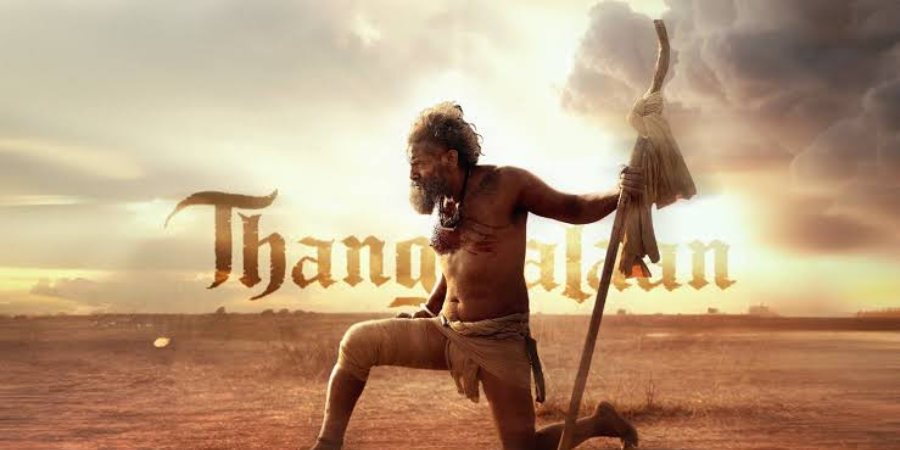

*Thangalaan*, directed by Pa. Ranjith, is a period drama that delves deep into themes of identity, oppression, and resistance, set in the 19th century. The film is a testament to Ranjith’s ability to weave complex social issues into compelling narratives, all while maintaining a strong emotional core. At its heart, *Thangalaan* is a story of a man and his people standing up against tyranny, but it also becomes a broader exploration of the search for identity and purpose.
The narrative unfolds in the Veppur village of North Arcot around 1850 CE, where a tribal clan, oppressed by a wealthy landlord, sends Thangalaan (played by Vikram) and a few men on a dangerous mission to find gold with the help of British general Clement (Daniel Caltagirone). The mission takes them into a territory controlled by Aarathi (Malavika Mohanan), a fierce sorceress who will stop at nothing to protect the land’s treasures. As the story progresses, Thangalaan’s quest becomes more than just a search for gold; it becomes a journey to protect his people and assert their identity in the face of oppression.
One of the film’s most memorable scenes involves Thangalaan, previously seen in a humble loincloth, riding in on horseback with a gun, dressed in a shirt, trousers, and suspenders, to repay the landlord and save his family from slavery. This moment, possibly a nod to Quentin Tarantino’s *Django Unchained*, encapsulates the film’s core idea: the fight for dignity and freedom against overwhelming odds. It is scenes like these where Ranjith’s mastery of cinema shines, using powerful imagery and performances to drive home the film’s themes.
Vikram’s portrayal of Thangalaan is a tour de force. Known for his versatility, Vikram brings a mix of vulnerability and strength to the role, embodying a leader burdened by inner turmoil yet determined to save his people. His performance is the backbone of the film, providing a strong emotional anchor amidst the chaos of the narrative. Malavika Mohanan, as Aarathi, delivers one of her best performances to date, shedding any vanity to fully immerse herself in the character’s intensity and mystique. Her portrayal adds a layer of intrigue and danger to the story, making her a formidable counterpart to Vikram’s Thangalaan.
Ranjith’s direction is marked by his usual flair for combining rich visual storytelling with potent social commentary. In *Thangalaan*, he continues his exploration of marginalized communities, as seen in his previous films like *Madras* and *Kaala*. Here, he uses the metaphor of gold not just as a literal treasure but as a symbol of identity and worth. Each character’s pursuit of gold mirrors their search for meaning and self-worth, a theme that Ranjith skillfully interweaves throughout the film.
However, despite its many strengths, *Thangalaan* is not without its flaws. The film’s pacing occasionally falters, and some segments, though powerful in isolation, struggle to cohesively blend into the larger narrative. There are moments where the film’s shine dims, with certain subplots feeling underdeveloped or rushed.
Overall, *Thangalaan* is a compelling and visually striking film that tackles important social issues through the lens of historical drama. Its powerful performances and Ranjith’s nuanced direction make it a noteworthy addition to contemporary Tamil cinema, even if it doesn’t entirely achieve the cohesion it aspires to.


